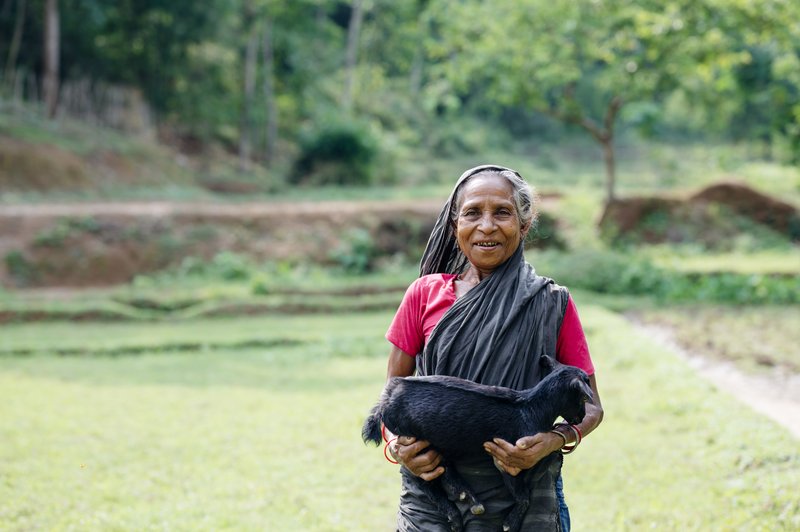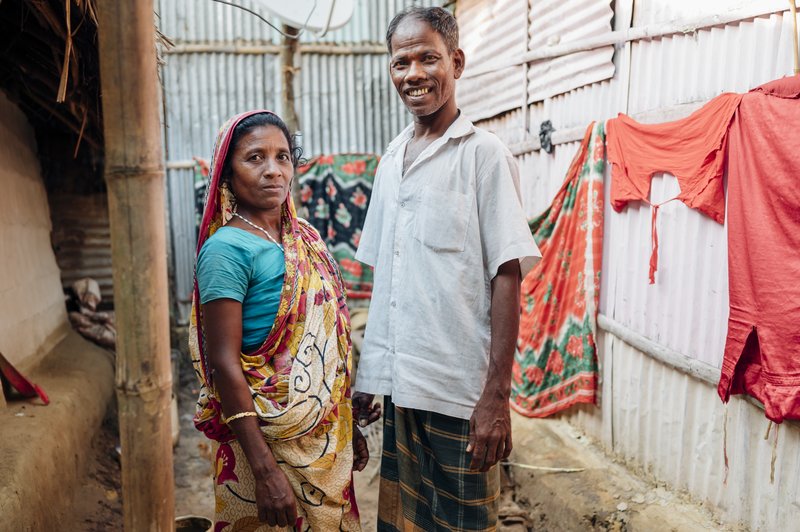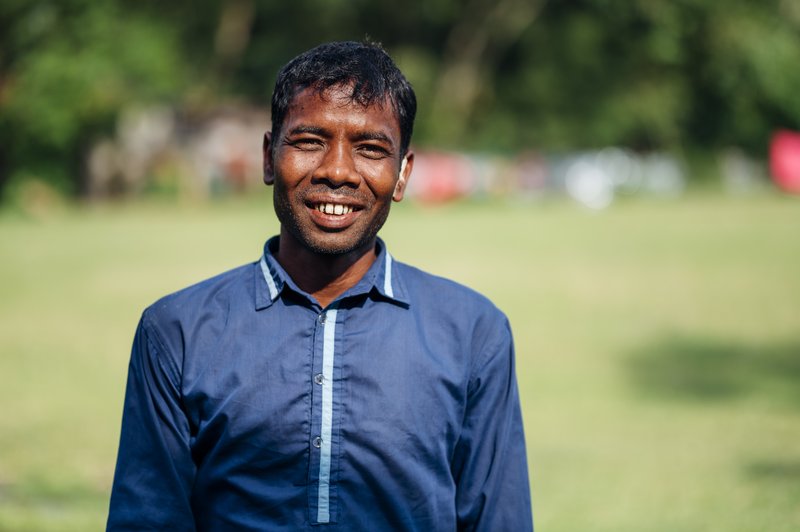Self-help groups: a powerful response to leprosy in Bangladesh
Over the last few months, we've shared stories about the tea gardens of Bangladesh. Here, our teams are finding more cases of leprosy than anywhere else where they work.
Leprosy rates are well above the global average - the outcome of decades of leprosy neglect, lack of access to health services, and poverty.
We urgently need to stop the spread of the disease here. And that’s why we’re working to bring healthcare into these communities with your support. You are making sure people affected by leprosy get the treatment they need.
But we don’t just want to see flourishing health here. We want to see flourishing lives and communities. For this we need to end poverty too. One way we can do this is through self-help groups.

Self-help groups bring people affected by leprosy, disabilities, or marginalisation together. As part of these groups, members learn how to look after leprosy-affected hands and feet, and advocate for their rights in society. They also develop opportunities to improve their livelihoods, or access state services. The friendships that people develop are often as valuable as the practical benefits.
Self-help groups are boosting livelihoods
Tea picking is hard work – the hours are long, the wages are low. People struggle to build up savings, and incomes are precarious. When people lose their jobs and incomes, they can be pushed into extreme poverty. This is all too common a reality, as many people got the cure for leprosy too late to prevent disability.
Self-help groups are, therefore, a powerful response to poverty. Through these groups, people can access financial support. For example, members can get loans they wouldn't be able to from a traditional bank. Members contribute to a group savings account, from which members draw loans. With an injection of cash, people can start new farming or entrepreneurial ventures.

Dhonu, pictured above, can no longer work because leprosy has affected his feet. He’s joined a self-help group, and has built up some savings already. In the future, he wants to use a loan from the group to start a small shop.
And financial boosts don’t always come in the form of financial loans. They also come in the form of goats. Chan Moni and her son are both members of a self-help group. They have been looking after a goat loaned to them from the group. When the goat has kids, Chan Moni will keep one and another goes back to the group to help someone else. Cyclical and sustainable, one goat benefits many people.
Inspiring a new vision for change
Self-help groups in the tea gardens are helping numerous people like Dhonu and Chan Moni to develop their financial security and restore incomes. Your generosity enables us to provide initial support to groups, so new ones can be set up and benefit even more people.
Our partners in Bangladesh also deliver leadership and finance training, helping people to feel more confident for the future. You are supporting people like Dhonu and Chan Moni to build new livelihoods. But you are also championing their dreams for their future.

Dulal, above, is a member of a self-help group and a leprosy federation in the tea gardens and has a big vision for the future. He doesn’t only want to build a strong self-help group; he wants to build a movement for sustainable change across the tea gardens. Change that is wholly community-owned.
“Tomorrow, I might not be here, you won't be here, but this group will be. I want the group to grow and develop. I want it to be a model that can change the whole of Bangladesh,” he told us.
You can be part of this movement. By supporting self-help groups as they thrive, we can achieve Dulal’s vision. We can see flourishing health, lives and communities in Bangladesh.
Photos: Ruth Towell